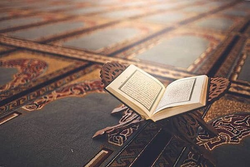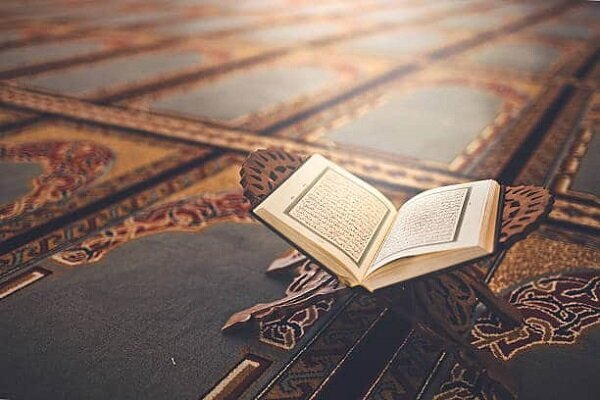Holy Quran A Book for All Aspects of Life


Despite common belief that the Quran is only about acts of worship and ethical points, it should be noted that only one-twelfth of the Quran, including some 500 verses, is about Fiqh (jurisprudential issues).
Most of the verses of the Holy Book are about different family, social, military, ideological, cultural, … issues.
What other book is there that lays so much emphasis on social issues like unity, consultation, fighting corruption, establishment of security and order, etc?
In its educational method, the Quran offers both plans and role models like the Holy Prophet (PBUH) (in Verse 21 of Surah Al-Ahzab), Abraham (AS) (in Verse 4 of Surah Al-Mumtahana) and pharaoh’s wife (in Verse 11 of Surah At-Tahrim).
Of course the Word of God affects those who have purified their soul of prejudice, selfishness, egoism, conceit, obstinacy, hate, etc, and are people of Taqwa (God-fearing) and love the truth.
The Holy Quran is a book of growth. Its stories are not for pass-time but are lessons for life. Its historical accounts are not just stories of past peoples but point to reasons for their fall or salvation. The Quran is a book that the more time passes, the more of its secrets are revealed. It is an easy, clear and eloquent book.
It is a guide that takes human beings from the earth to God and from matter to meaning.
It gives insight to people with strong evidence, gives them method by recounting the stories of prophets and nations and encourages them to strive by informing them about rewards.
The Quran is the book of guidance: “That is the (Holy) Book, where there is no doubt. It is a guidance for the cautious (of evil and Hell).” (Verse 2 of Surah Al-Baqarah)
The Quran is a book of healing and a cure for pains: “We sent down of the Quran that which is a healing and a mercy to believers.” (Verse 82 of Surah Al-Isra)
The Quran is a book of glad tidings and warnings: “It is in the Arabic language so that it may warn the unjust people, and give glad news to the righteous ones.” (Verse 12 of Surah Al-Ahqaf)
The Quran is a book of friendship with the righteous: “… surely Allah loves the doers of good.” (Verse 195 of Surah Al-Baqarah)
The Quran is a book that invites all to do good: “Show kindness to your parents, to kinsmen, to the orphans, and to the needy, and speak of goodness to people.” (Verse 83 of Surah Al-Baqarah)
The Quran is a book of reflection and contemplation: “We have revealed it in the Arabic language so that you (people) would understand it.” (Verse 2 of Surah Yusuf)
It is book of invitation to act: “…, why do you say what you never do?” (Verse 2 of Surah As-Saff)
It is a book of Jihad and struggle: “Allah loves those who fight in His Way lining up as if they were a stacked building.” (Verse 4 of Surah As-Saff)
It is a book of invitation to reflecting and knowing the nature: “Have they not looked at how the camel is created, how the heavens are raised up high, how the mountains are set firm, and how the earth is spread out?” (Verse 17-20 of Surah Al-Qashiya)
It is a book in which not only the relation between man and God, but also that between man and other people and man and nature are explained.
It is a book of politics and governance: “We have revealed to you the Book in all Truth so that you judge among people by the laws of God.” (Verse 105 of Surah An-Nisa)
Those who consider religion and politics to be separate, their claim means some parts of the verses should be removed.
The Quran clearly describes how one should interact with people. It talks about fighting against superstitions, remaining committed to promises and political, economic and military contracts, and observing the rights of others.
This divine Book creates such an insight in people that they see themselves in the presence of God, the Almighty, at all times.


